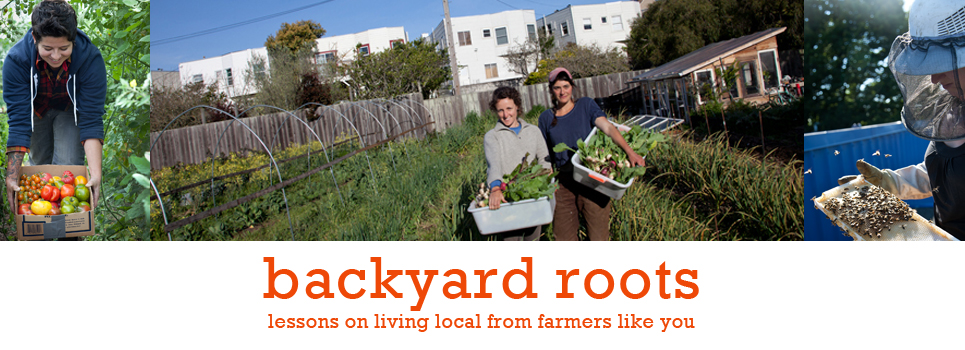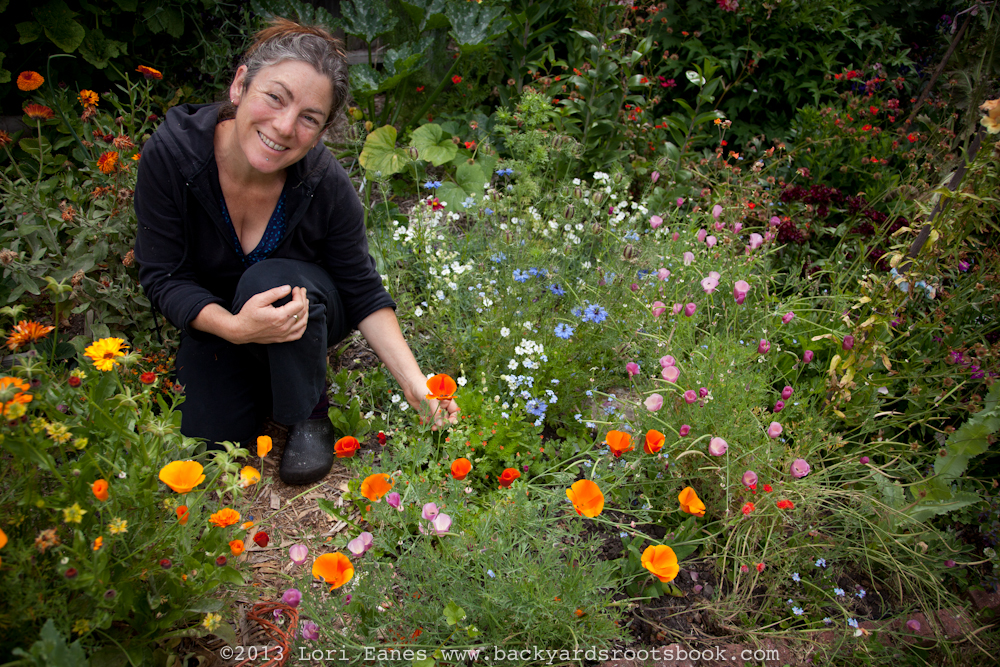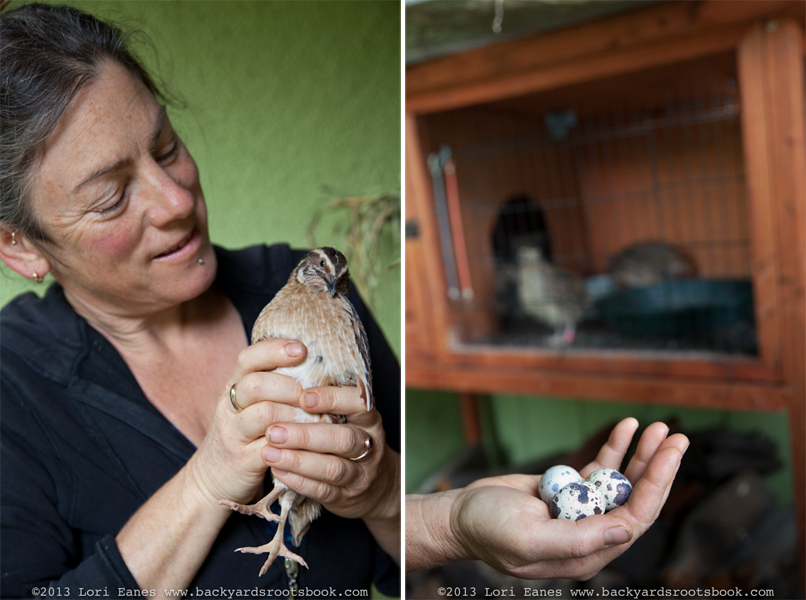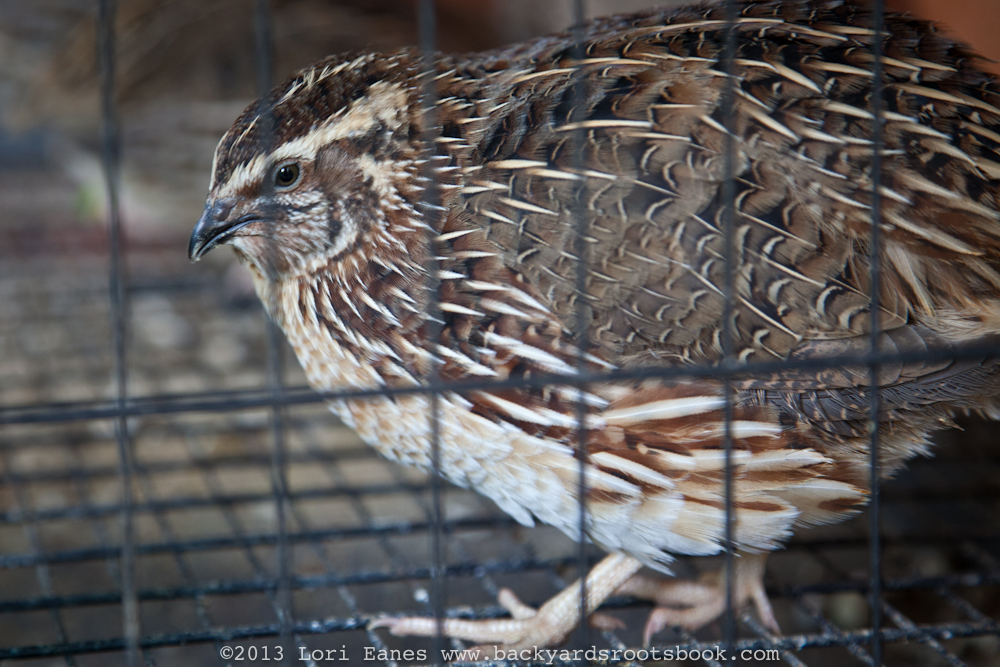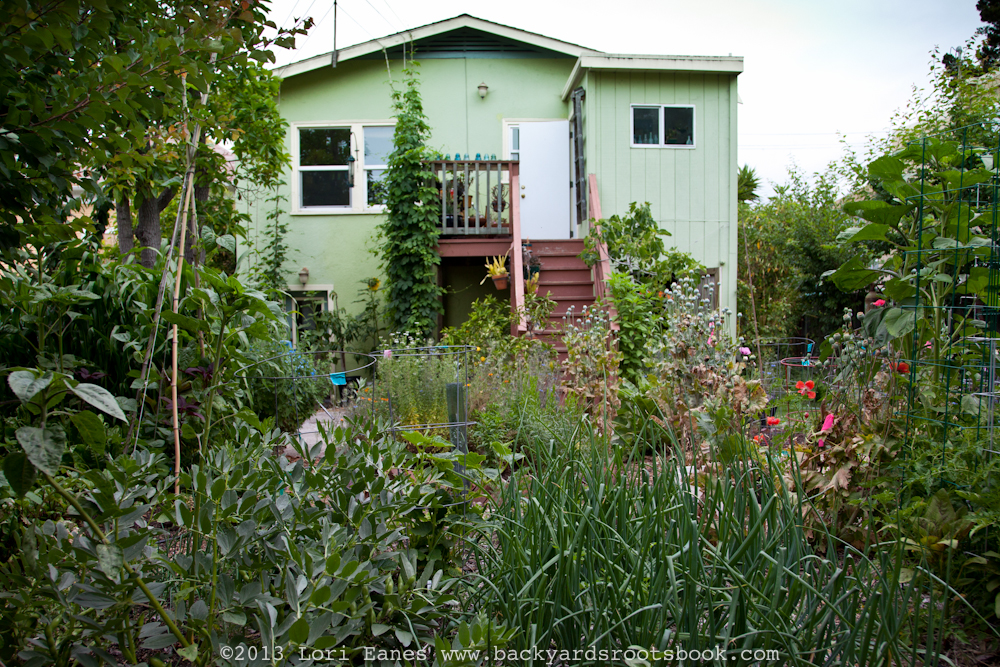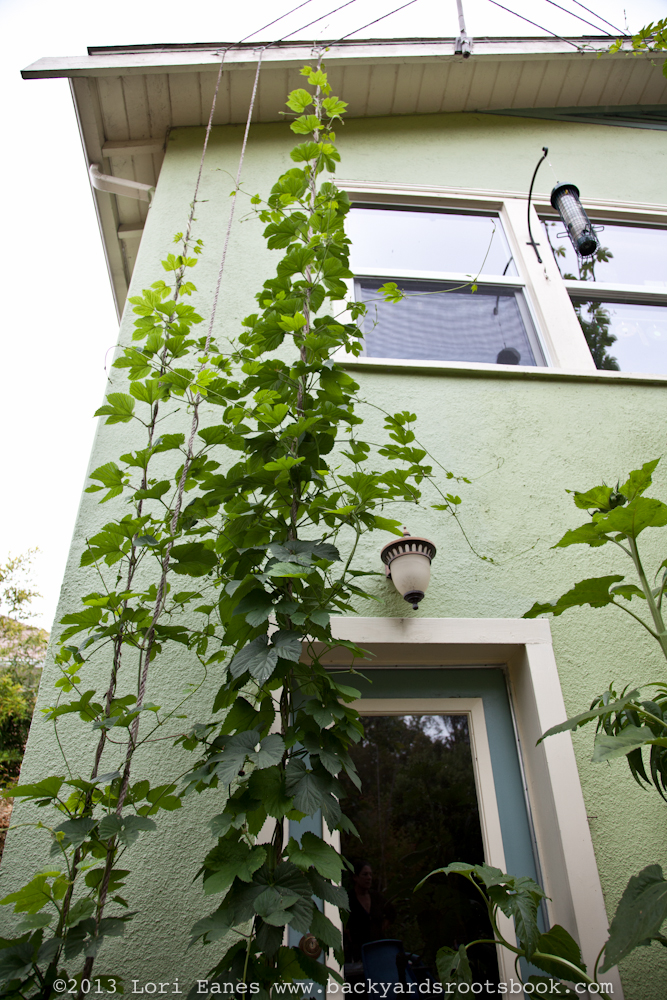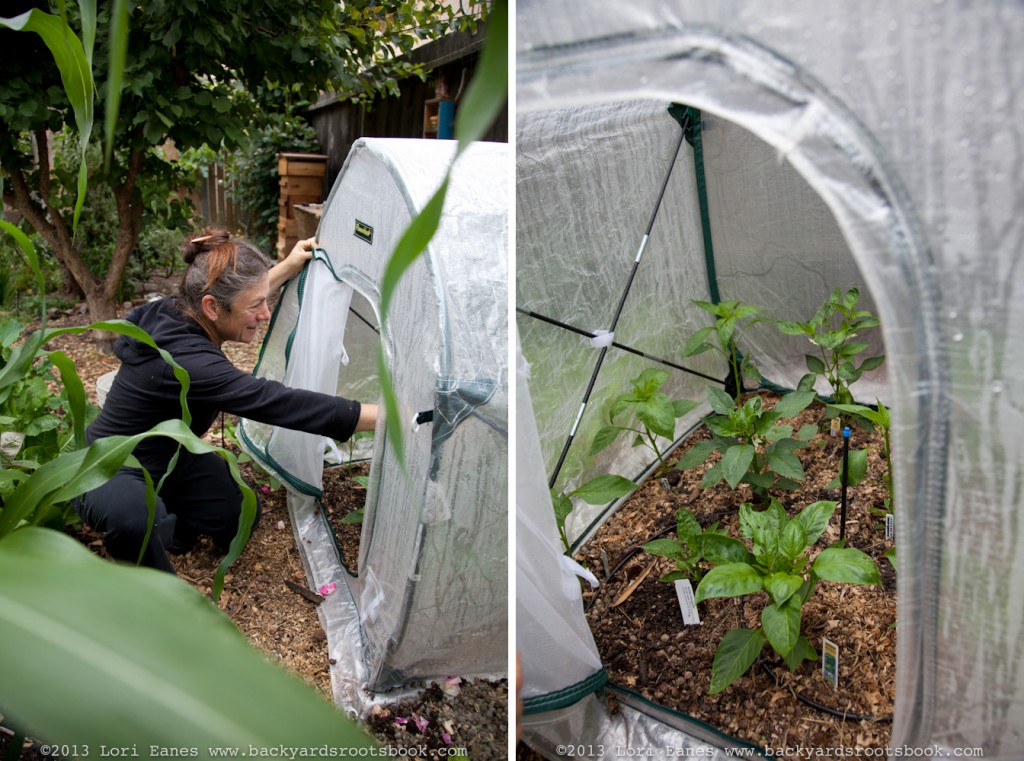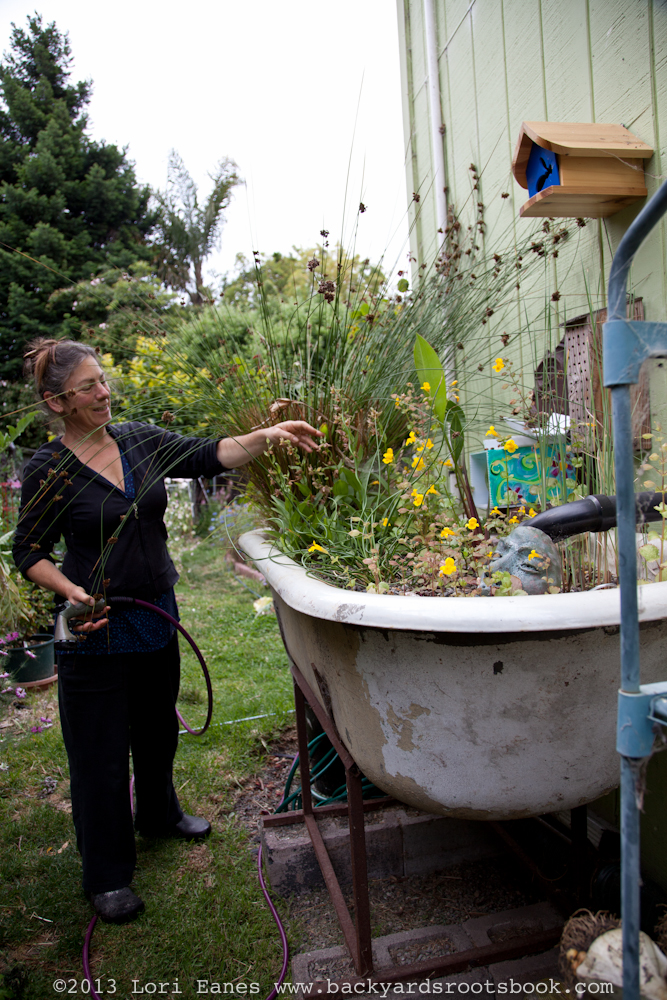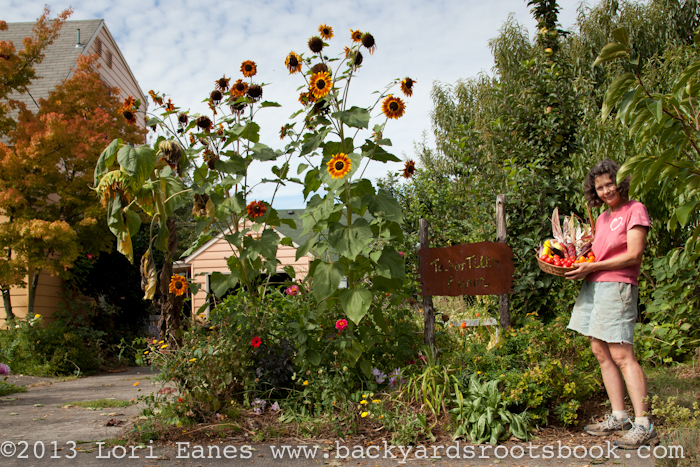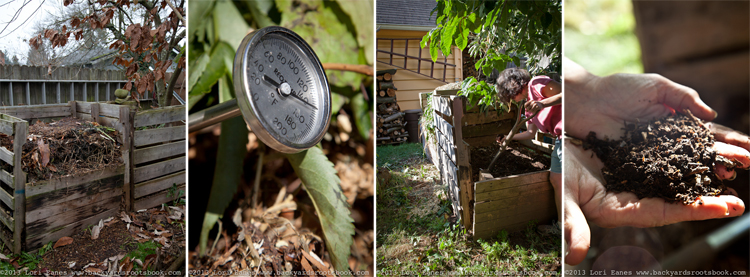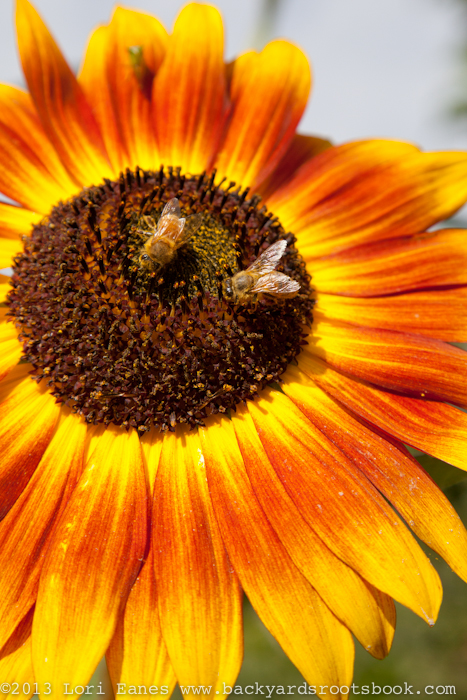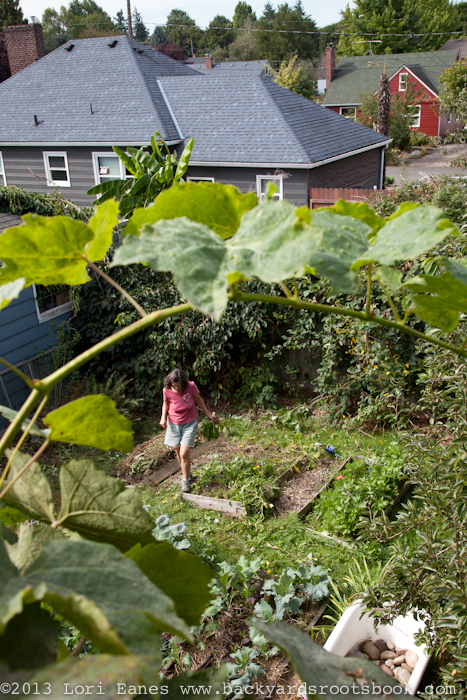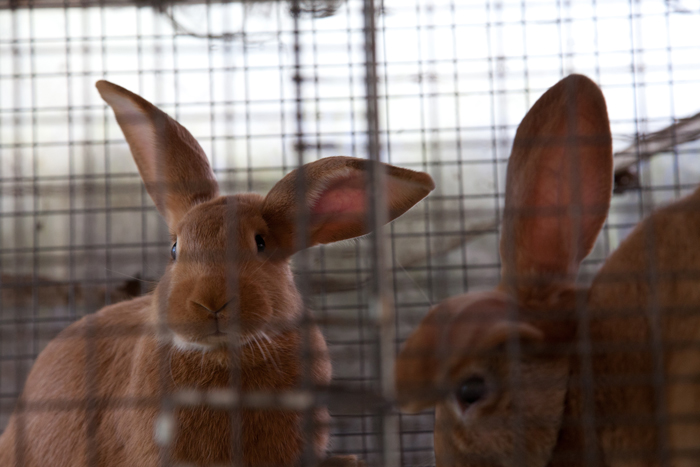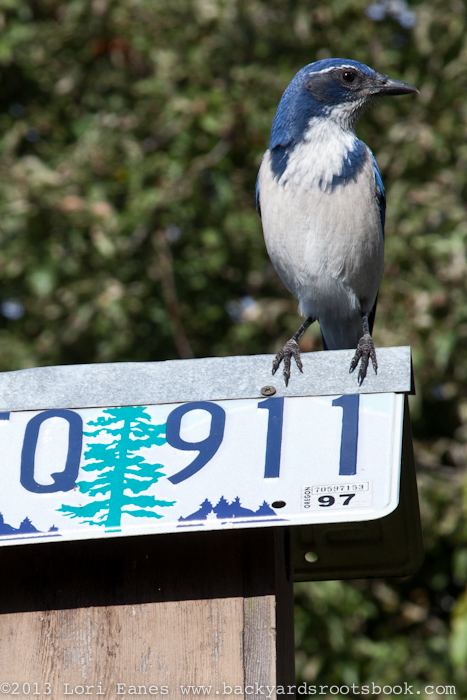I don’t know how I missed visiting Ruby’s place while I was working on Backyard Roots– I guess it was because her book, Urban Homesteading was about to come out. What an amazing place..
Her yard is an average sized Oakland lot, about 1/10 of an acre but it is packed with around 250 species of plants, she estimates. Every inch is used. When she moved in about nine years ago, she cut down two badly placed trees. But since then she’s replaced them without 25 new fruit trees that she’s planted around the borders. Her herb garden is conveniently located at the bottom of her steps and you can see the influence of permaculture ideas in her garden design. There’s mushrooms in the shady side yard, compost in the back corner, rabbits in another shady spot, and bees and quail too.
The garden is not just food though. She says she grows more food than she can eat, so she also devotes space for fun things like flowers, two water gardens in old tubs, succulents and carnivorous plants. She likes flowers not only because they’re beautiful but they attract pollinators and draw other insects away from the food crops.
Another unique thing about her backyard farm are the quail. She never wanted chickens, they eat up a lot of real estate. Instead she went with quail, the perfect micro farm animal. She has four including a male for gender diversity. The hens lay about one egg each day through spring and summer and they are beautiful speckled works of art that she eats hardboiled, sunny side up and barters too.
She also keeps two bee hives and rabbits and that will be coming up in another post. The best thing is you can learn it all from Ruby. She founded and teaches classes at the Institute of Urban Homesteading. Coming up next Saturday June 8th, The Institute has its annual East Bay Urban Farm Tour. It features seven east bay urban farms. See them all for $30 or pay as you go for $5/farm. I’ll see you there.
